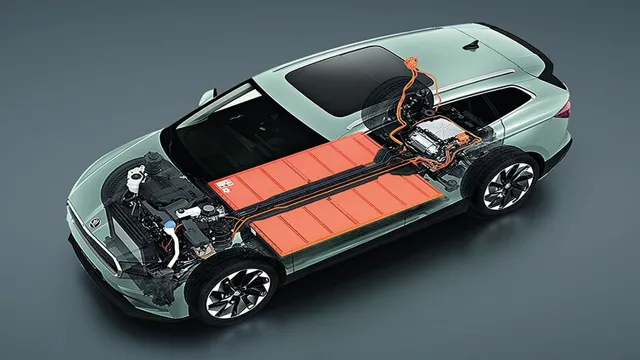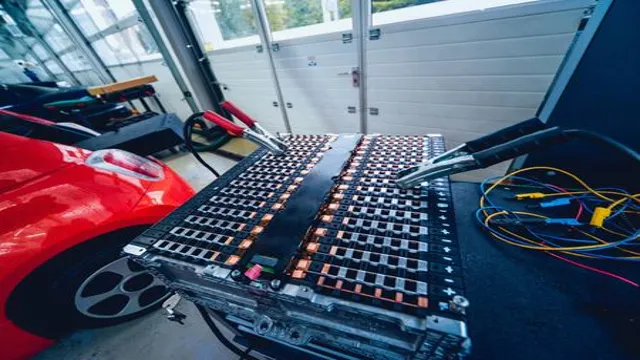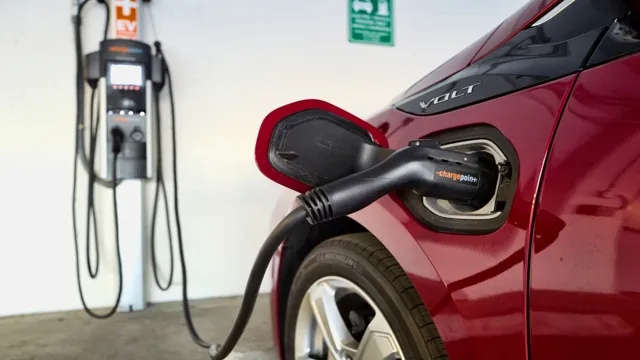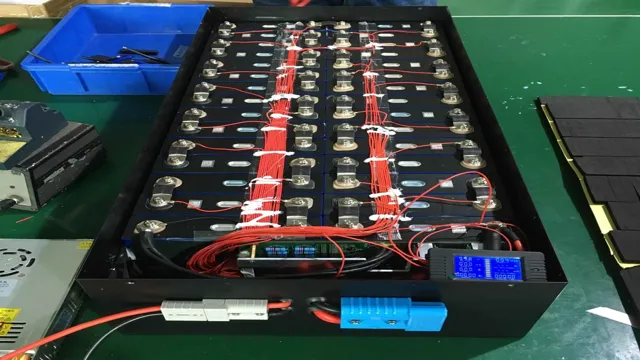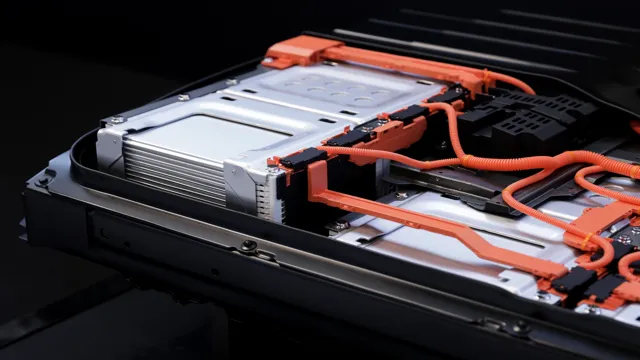Exploring the Eco-Friendly Side of Electric Car Batteries: Are They Made from Recycled Materials?
Electric cars are becoming increasingly popular as people become more environmentally conscious. One common question among electric car owners and those considering buying one is whether their batteries are recycled. After all, it seems counterproductive to switch to an eco-friendly vehicle if the battery will end up in a landfill.
So, are electric car batteries recycled? The answer is yes! However, the process of recycling electric car batteries is complex and requires specialized facilities and techniques. In this blog post, we will explore the process of electric car battery recycling and why it is a crucial part of sustainable transportation.
The Basics
Yes, electric car batteries are made from recycled materials. In fact, a lot of the materials used in electric car batteries are recycled to start with, like aluminum, which is used for the shell. The most important metals used in the battery are cobalt, nickel, and lithium, and they are often recycled.
Recycling these materials reduces the environmental impact of mining, which can be harmful to the environment. Although recycling can have an environmental cost, reducing the amount of energy expended mining materials is the primary advantage of recycling, and it reduces the cost of producing electric car batteries overall. Recycling the materials used in these batteries will also help to reduce the dependence on non-renewable resources, which leads to more sustainable development.
Composition of Electric Car Batteries
When it comes to electric car batteries, it’s important to understand the composition to better understand their capabilities. These batteries typically consist of a combination of several lithium-ion cells connected in series or parallel. Lithium-ion cells are chosen due to their high energy density, which allows them to store a large amount of energy in a small space.
Additionally, these cells often use different cathode and anode materials depending on the specific battery manufacturer. For example, some may utilize graphite anodes while others may use silicon or a combination of both. The electrolyte, which allows for the movement of ions between the cathode and anode, is also an important component.
These various components work together to create a powerful and efficient battery system, allowing electric cars to travel longer distances without needing to recharge.
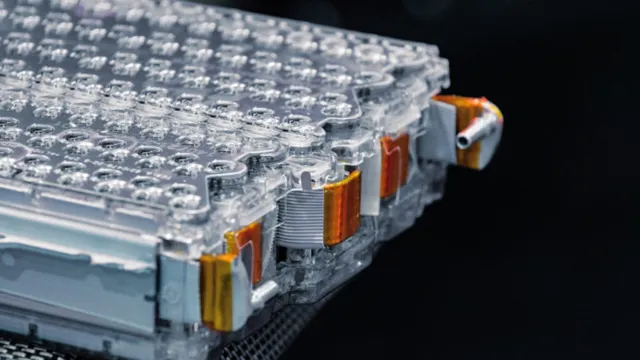
Common Materials Used
When it comes to designing and creating everyday items, there are a variety of common materials that are used. Some of the most popular choices include wood, metal, plastic, glass, and fabric. Each material has its unique advantages and disadvantages depending on the intended use and design.
For example, wood is a classic material that has been used for centuries due to its natural beauty and warmth. Metal, on the other hand, is often used for its durability and strength. Plastic is a versatile material that can be molded into various shapes and sizes, and glass is known for its transparency and ability to refract light.
Finally, fabrics are typically used for their softness and flexibility, making them ideal for clothing and upholstery. Understanding the properties of common materials is critical in ensuring that your designs are functional and practical. Therefore, choosing the right material for a particular project requires careful consideration and analysis.
Sustainability Practices
Electric car batteries are becoming increasingly popular due to their eco-friendly nature. One question that arises is whether these batteries are made from recycled materials. The answer is yes and no.
While some electric car batteries do contain recycled materials, not all of them do. The materials used in the battery can depend on the manufacturer and the specific model of the car. However, many car companies are making efforts to use more recycled materials in their batteries as part of their sustainability practices.
For example, Tesla has a recycling program that extracts valuable materials from old batteries and reuses them in new ones. This not only reduces waste but also decreases the demand for new materials, which is good for the environment. So, while electric car batteries may not always be made entirely from recycled materials, many car companies are taking steps towards a more sustainable future.
Recycling Programs in Place
Recycling Programs in Place – Sustainability Practices Sustainability practices are becoming more and more important in our daily lives. As we become more conscious of the negative impact we have on the environment, we look for ways to reduce waste and improve our recycling efforts. One way that many businesses and organizations are addressing this issue is by implementing recycling programs.
These programs are designed to help divert waste from landfills and turn it into useful products. Recycling programs can vary depending on the size and scope of the organization. Some companies may focus on recycling paper and cardboard, while others may also include plastic and metal materials.
Some businesses have even started composting programs to help reduce food waste and create nutrient-rich soil for gardens and landscaping. One of the benefits of recycling programs is that they can have a positive impact on the environment. By diverting waste from landfills, we are reducing the amount of methane gas that is produced.
Methane gas is a potent greenhouse gas that contributes to climate change. Additionally, recycling programs can help conserve natural resources by reducing the need for new materials to be produced. Overall, recycling programs are an essential part of sustainability practices.
They help reduce waste, conserve resources, and minimize our negative impact on the environment. By implementing these programs, we can all contribute to a healthier and more sustainable future. So, what can you do to support these efforts? Look for ways to recycle in your own life, and encourage your workplace or community to implement a recycling program.
Together, we can make a difference!
Lithium-Ion Battery Recycling
Lithium-ion battery recycling plays a critical role in promoting sustainability practices in today’s world. As the demand for electric vehicles continues to grow, so does the need for sustainable solutions to dispose of used batteries. Recycling these batteries is not only necessary for preserving the environment and conserving resources but also for promoting a circular economy where materials are reused, reducing waste and carbon emissions.
Recycling lithium-ion batteries involves disassembling the battery and reusing its components, such as the cathode, anode, and electrolyte, to produce new batteries or other products. Incorporating sustainable practices like battery recycling into our daily lives can have a massive impact on reducing our carbon footprint and promoting a more sustainable future.
Environmental Benefits
When it comes to environmental benefits, sustainability practices are key. By implementing sustainable practices, businesses and individuals can reduce their impact on the environment. For example, reducing energy consumption by using energy-efficient light bulbs and appliances can significantly reduce carbon emissions and energy costs.
Using eco-friendly products and materials can also reduce waste and prevent harmful pollutants from entering the environment. Additionally, practices such as composting and recycling can divert waste from landfills and reduce greenhouse gas emissions. Sustainable practices not only benefit the environment but also support a healthier and more sustainable future for all.
By making small changes in our daily lives and in business practices, we can all do our part in creating a greener and more sustainable world.
Future Outlook
When it comes to electric car batteries, there is a growing trend towards utilizing recycled materials. In fact, many manufacturers are now using recycled metals such as cobalt, nickel, and lithium to reduce their environmental impact and conserve natural resources. Additionally, some companies are exploring the use of recycled plastics and other materials in the battery casings and packaging to further reduce their carbon footprint.
While not all electric car batteries are currently made from recycled materials, this trend is likely to continue as companies seek to meet consumer demand for more sustainable and eco-friendly products. So while you may not be driving a fully-recycled battery-powered car just yet, the future certainly looks promising for those wishing to reduce their carbon footprint on the road.
Advancements in Sustainable Materials
Advancements in sustainable materials are continuing to push the boundaries of what we thought was possible. In the future, we can expect to see even more innovative materials that can help us reduce our environmental impact. One example is mycelium, which is the vegetative part of fungi that can be grown into various products.
This material is biodegradable, compostable, and can be grown using agricultural waste. It has already been used to create furniture, packaging, and even clothing. Another upcoming sustainable material is plant-based leather made from fruits, such as pineapples and apples.
These materials offer viable alternatives to traditional materials like plastic and animal leather, which have significant environmental impacts. As we learn more about sustainable materials, we can use them to create a more sustainable world.
Growth of Electric Car Market
The growth of the electric car market has been unprecedented in recent years. According to market research, the global electric car sales volume is projected to reach 54 million units by 2040.
This is due to several factors, including government incentives, technological advancements, and a shift towards more sustainable lifestyles. For instance, many countries have introduced policies to encourage electric car adoption, such as tax credits and subsidies. Tesla, one of the biggest electric vehicle manufacturers, has also led the way in developing more efficient and affordable electric cars, with other companies following suit.
In addition, consumers are becoming increasingly conscious of their carbon footprint and are opting for greener modes of transport. This has resulted in a surge in electric car sales, making them a viable alternative to traditional gasoline vehicles. As the electric car market continues to grow, it is expected to revolutionize the automotive industry, reducing our dependence on fossil fuels and contributing to a more sustainable future.
Conclusion
In conclusion, the answer to whether electric car batteries are made from recycled materials is not a simple yes or no. While some components of the batteries may be made from recycled materials, such as certain metals, the production process still requires the use of newly mined materials. However, as technology and sustainability practices continue to advance, we can hope for a future where electric car batteries are made entirely from recycled and sustainable materials.
Until then, it’s up to all of us to do our part in reducing waste and supporting eco-friendly initiatives.”
FAQs
What materials are commonly used in the construction of electric car batteries?
Electric car batteries are typically made using a combination of metals like lithium, cobalt, and nickel as well as other materials such as graphite, copper, and aluminum. However, the specific materials used can vary depending on the manufacturer and model.
Are electric car batteries made from recycled materials?
Yes, many electric car batteries are made using recycled materials. For instance, some companies use recycled lithium from old batteries or scrap metal from other industries in the production of new batteries. However, not all electric car batteries are made from recycled materials as it depends on the manufacturing process of each company.
What happens to electric car batteries at the end of their life?
Once electric car batteries reach the end of their useful life, they are typically recycled. This involves breaking down the batteries and separating out the valuable metals and other materials for reuse in new batteries or other products. Some companies also offer battery repurposing programs that allow the batteries to be used for energy storage in homes or businesses.
How do electric car batteries compare to traditional car batteries in terms of environmental impact?
Electric car batteries can have a lower environmental impact than traditional car batteries, as they do not emit pollutants during use. However, the production and disposal of electric car batteries can also have environmental impacts, particularly if the batteries are not recycled properly. Overall, the environmental impact of electric car batteries depends on a variety of factors such as the materials used, manufacturing processes, and end-of-life management practices.
